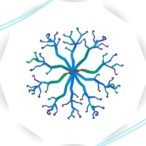After charting several related moves earlier this year, Boehringer Ingelheim is returning to the antibody-drug conjugate well.
Boehringer will pay AimedBio up to $991 million to license and develop one of the South Korean biotech’s ADCs across a “broad range of cancers,” the companies said in an Oct. 15 press release.
Under the deal, AimedBio is in line to receive an undisclosed upfront payment from Boehringer plus potential development, regulatory and commercial milestones. Boehringer is also on the hook to pay out royalties on potential future sales of the ADC candidate.
The ADC asset girding the deal targets a protein expressed in many malignancies, which plays a “significant role” in tumor growth, metastasis and therapeutic resistance, according to the new partners. AimedBio’s ADC weds a cancer-targeting monoclonal antibody with a derivative of exatecan as the cytotoxic payload, the companies said.
Boehringer and AimedBio did not elaborate on the specific cancers they plan to target with the candidate, which is expected to enter first-in-human studies in 2026.
AimedBio has just three ADC candidates in its pipeline, two of which are already partnered off, according to the company’s website. The remaining ADC, coded AMB304, is being developed in solid tumors.
“Targeting the specific cancer surface marker with AimedBio’s ADC may expand precision medicine treatment options for currently hard to treat cancers and potentially deliver meaningful benefit to patients,” Vittoria Zinzalla, Ph.D., Boehringer’s global head of experimental medicine, said in a statement. “We are proud to move this program into the clinic as part of our mission to transform cancer care.”
ADCs have been proven highly effective—and lucrative—in cancer treatment, prompting an outpouring of development efforts in recent years.
Boehringer first threw its hat into the ADC ring with the 1.2 billion euro purchase of Swiss conjugation specialist NBE-Therapeutics in late 2020, which allowed the company to add a ROR1-directed ADC to its pipeline. In its press release Wednesday, Boehringer noted that it’s using its NBE subsidiary to drive the ADC agenda at the company.
Aside from the latest AimedBio deal, Boehringer has charted a number of other ADC projects in 2025, starting with a partnership with Lonza unit Synaffix that was unveiled in January.
Related
Under that licensing pact—which is worth up to $1.3 billion—Synaffix agreed to grant Boehringer access to its proprietary ADC technologies for an “agreed but undisclosed number of targets.” The companies confirmed the first target prior to the deal’s signing, with the remaining ones to be determined later, Boehringer and Synaffix said at the time.
Months later, Boehringer in April laid out 27 million Swiss francs (then worth roughly $31 million) to stand up a new NBE research and development facility for ADCs in the Swiss city of Basel. The project covers 1,826 square meters (19,655 square feet) of lab space and will host about 50 scientists as well as other staff.
The site is expected to “contribute to building a broad pipeline of ADCs, addressing novel tumor target space to develop next-generation cancer treatments,” Boehringer said earlier this year.


